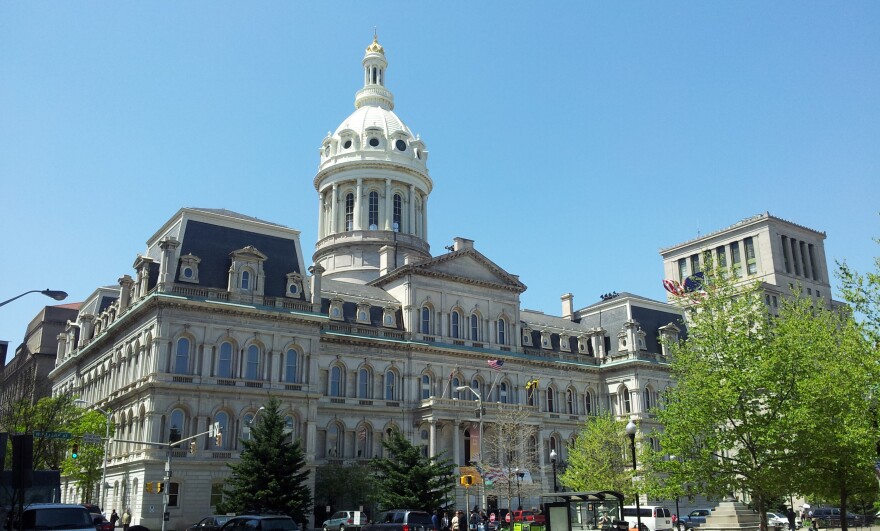City Council Chambers were overflowing on Thursday night with anxious people wanting to learn more about what police, housing authorities and the mayor’s public safety agency did when they learned about the Brooklyn Day block party. That annual event, attended by hundreds of people, ended in the worst mass shooting in Baltimore’s recent history. Two people were killed and 28 others injured in the early hours of July 2nd.
A grueling four-hour long session of Baltimore’s City Council Government Oversight Committee, chaired by Councilmember Mark Conway, ended with few answers and lots of frustration.
Acting Police Commissioner Richard Worley admitted that police received multiple calls from Brooklyn Homes on the day about the party. The Baltimore City Police department fielded calls from residents concerned about growing crowds and BPD sent the Foxtrot helicopter; Foxtrot reported back that everything was “normal.” Those calls were not escalated up the command for assistance.
“It seems from what we’ve learned so far that this was an even greater breakdown in communication and judgment that is absolutely unacceptable,” Worley told councilmembers.
He also admitted that the department should have been making more of an effort to learn about the annual party that has run for nearly three decades, despite having a team who monitors social media for intelligence. But it still doesn’t change the fact that police didn’t act with the information that they knew on the day he said.
“When we saw the crowd gathering and growing and when we got reports that there were people with weapons, we could have and should have done more,” said Worley. “We should have moved additional resources to the Southern District to assist.”
The department is doing an internal investigation into the incident, according to Worley. That is being done in coordination with administrators of the federal consent decree, a series of justice department mandated policing reforms. The investigation report will be publicly released in 45 days, he said.
Council President Nick Mosby laid into Worley, saying that the lack of police response to Brooklyn Homes is an “equity issue.”
“It's just hard for me to grapple, and to express to residents that if this was in Fells Point, it would have happened the same exact way,” said Mosby. “It's just hard for me to accept or understand that. And I think it gets to a culture.”
Thursday’s meeting called into question not just the police department but the Mayor’s Office of Neighborhood Safety and Engagement (MONSE), the Housing Authority of Baltimore City and the Department of Transportation which oversees “special event permits.” Leaders from the transportation department said a “special events permit” would not apply to the Brooklyn Day party because they do not issue permits for events held on housing authority property.
Brooklyn Homes is a public housing project, run by the Housing Authority of Baltimore City. CEO Janet Abrahams did not take responsibility for what HABC is calling an “unsanctioned” event. She chastised residents for not alerting relevant authorities about the July 4th weekend block party. Technically, she said they were breaking rules by using the authority’s electricity without authorization and having liquor on site.
“Ladies and gentlemen, I just want to be clear. We have done everything that we possibly can over the years to ensure that any events that happen on our property have the proper protocols in place,” said Abrahams, who then went on to note that there will always be people who do not follow those.
“When we learn about those things, we have consequences. And the consequences is to make sure that we terminate their lease, understanding that if the Housing Authority terminates your lease, you cannot be housed in any programs across the country because of these types of events.”
Councilmembers urged the authority to work with residents to find safe ways to gather rather than punish them for holding events.
MONSE was also questioned. Interim Director Stefanie Mavronis defended the youth curfew, which requires teenagers to be home or accompanied by an adult after 11 p.m. MONSE said that there were adults at the event and therefore the curfew did not apply.
The Safe Streets program, which is made up of civilian violence interrupters, also came under criticism. Safe Streets is run through Catholic Charities but works in partnership with MONSE and receives city money. Catholic Charities testified but was not formally called to the hearing.
Councilmembers wanted to know if the violence interruption agency mediated any incidents at the block party. The council learned five events were mediated. But City Administrator Faith Leach said that the city could not release specifics, instead she began to suggest to Chairman Conway that they could have a follow-up conversation about that response.
At that moment, an angry man shouted at Leach from the balcony saying, “Two children are dead!”
Fighting back tears, Leach said, “And we all grieve. We absolutely all grieve. And what happened was awful.”
Mavronis also defended the Safe Streets program, reiterating that their de-escalation tactics have data from across the nation proving their success. The workers on-site at Brooklyn Homes were there as part of their nightly rounds and not because they had specifically been dispatched to the site, she said. The police department also confirmed that they did not notify MONSE about the calls they received from Brooklyn Homes before the shooting.
After pressure from Councilmember Isaac “Yitzy” Schleifer, MONSE did admit that they have not yet reviewed the five conflicts that were mediated before the shooting.
Police have made one arrest thus far related to the shooting. They believe multiple shooters and multiple weapons were involved.









